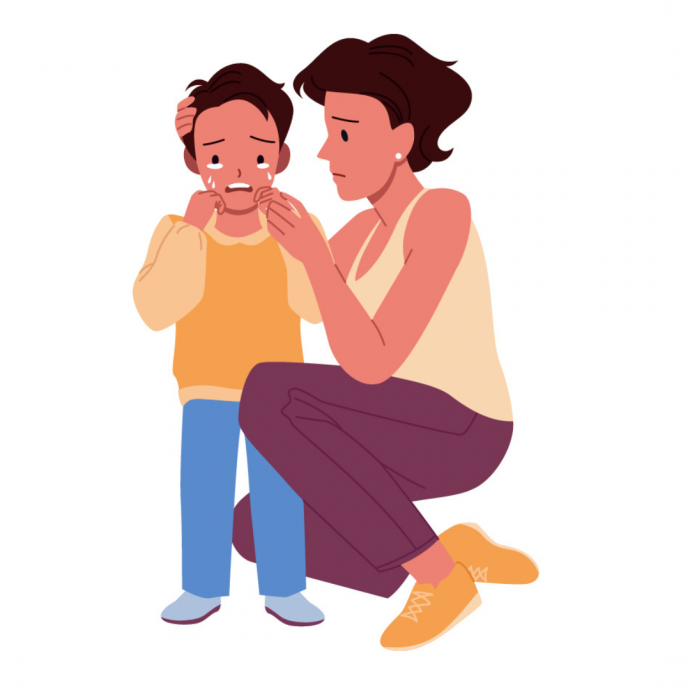Some children are naturally more sensitive than others – they break down, cry easily and get upset when the world doesn’t conform to their expectations. If you have kids that are emotional, empathic or anxious, is that something that you should worry about as a parent? Will you have trouble disciplining them?
Who are sensitive kids?
While most children cry every now and then, emotionally sensitive children become overwhelmed much more easily. They cry often, worry about getting into trouble frequently, require a great deal of reassurance and are typically resistant to change. Sensitivity in children is not a bad trait; in fact, many sensitive children can be very kind and compassionate. However, because they feel every emotion more intensely than the average child, they can become overly excited, extremely scared and overwhelmingly angry.
There are some indicators that will help you determine if your young child might be a highly sensitive child. For example, if your child doesn’t like surprises, or if they don’t do well with even slight changes, then they are probably sensitive. You may also notice that they perform best when strangers aren’t present as they tend to be very shy. Sometimes, they are prone to feeling hurt, take criticism very harshly, may overreact in certain unfamiliar situations and fuss a lot when there is a change in their routine.
What can you do?
As a parent, you can help create a conducive environment for your child and teach them coping strategies to make it easier to navigate through the large, loud world around them. As much as you can, avoid using labels to describe them – for example, don’t say things like “Aliya is too sensitive,” “Chee Kian is so shy,” or “Rayna is very quiet” – even when talking about them amongst your own friends and family.
Instead, always focus on positive qualities that come from being highly sensitive. Children with high sensitivity or sensory-processing sensitivity can have many positive qualities such as empathy, intuition, deep thinking, creativity, reflectivity and attention to detail. With proper guidance, love and support, you can nurture these wonderful qualities in your child.
Always respect their feelings and give them enough room and time to process their feelings. Don’t invalidate or downplay their feelings by saying things like “Don’t be so sensitive!” Provide adequate downtime, set reasonable limits and suggest replacement actions when necessary.
It is worth noting that everyone has their own combination of strengths and weaknesses. Being highly sensitive can bring a number of positive qualities, but it may also present some challenges that children and their parents will need to work through. The good news is that with positive strategies in place, these children can embrace their sensitivity and thrive. If need be, getting professional help to connect better with your child is highly encouraged. Lastly, remember to stay positive and utilise all the necessary resources in your journey to guide your child into becoming a healthy, happy and well-adjusted adult in the future!






